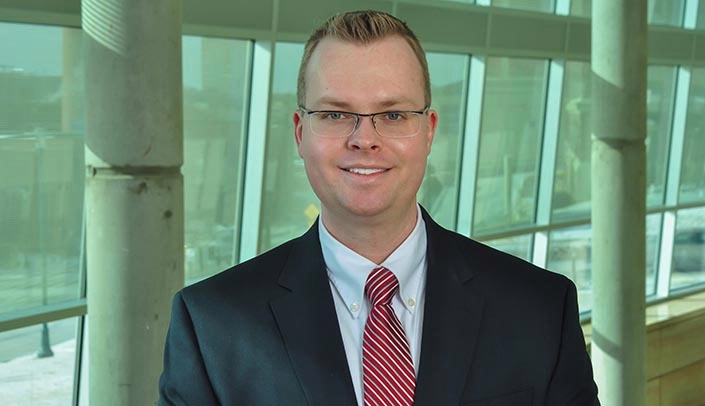The Munroe-Meyer Institute’s Brian Greer, Ph.D., will be the site principal investigator on a new grant written with principal investigator Timothy Shahan, Ph.D., of Utah State University, that will explore ways to reduce relapse in children who engage is severe problem behavior.
The multicenter R01 application, titled “Resurgence as Choice: Basic and Clinical Studies,” will be funded by the Eunice Kennedy Shriver National Institute of Child Health and Human Development.
“Dr. Shahan is a basic science researcher who is the leading expert in behavioral relapse models,” said Dr. Greer. “He recently developed a quantitative theory of relapse called ‘resurgence as choice.'”
Resurgence, Dr. Greer explained, is a specific sequence of events that reliably causes relapse — such as when caregivers stop implementing treatment as designed.
“‘Resurgence as choice’ theory describes the specific conditions under which you’re likely to see relapse,” Dr. Greer said. “What we’ve done in working with Dr. Shahan is to use resurgence as choice theory to arrange procedures that test the validity of the theory in mitigating relapse — first in Dr. Shahan’s lab with nonhuman animals and then in our program, where we work with children who engage in severe problem behavior.”
Dr. Shahan’s theory is a departure from traditional relapse theory, Dr. Greer said.
“Our earlier grants have been premised on something called ‘behavioral momentum theory,’ which for decades was the predominate theory from which researchers have understood relapse,” Dr. Greer said.
Behavioral momentum theory is also a quantitative theory of behavior but one that describes the respondent processes believed to strengthen behavior and contribute to relapse. However, recent findings from basic research conducted in Dr. Shahan’s laboratory question the validity of some of the predictions and underlying assumptions of behavioral momentum theory.
“Our team has looked to behavioral momentum theory (and more recently, resurgence as choice theory) to better understand and prevent the relapse of problem behavior following successful treatment,” Dr. Greer said.
In the Severe Behavior Disorders Program, results are already impressive. A recent paper published in the “Journal of Applied Behavior Analysis” found that problem behavior was reduced by an average of 96 percent across a cohort of 20 patients treated in the program.
But Dr. Shahan’s theory holds the potential to ensure that those reductions in problem behavior maintain over time, and Dr. Greer is excited to work with his patients and their caregivers to see what kind of impact the “resurgence as choice” theory has.
“If you know a lot about the situations that are likely to cause relapse, you can make sure to avoid those situations when you’re developing treatments for problem behavior,” he said. “So we can basically inoculate children from relapse — that’s the goal.”

Congratulations, Dr. Greer!